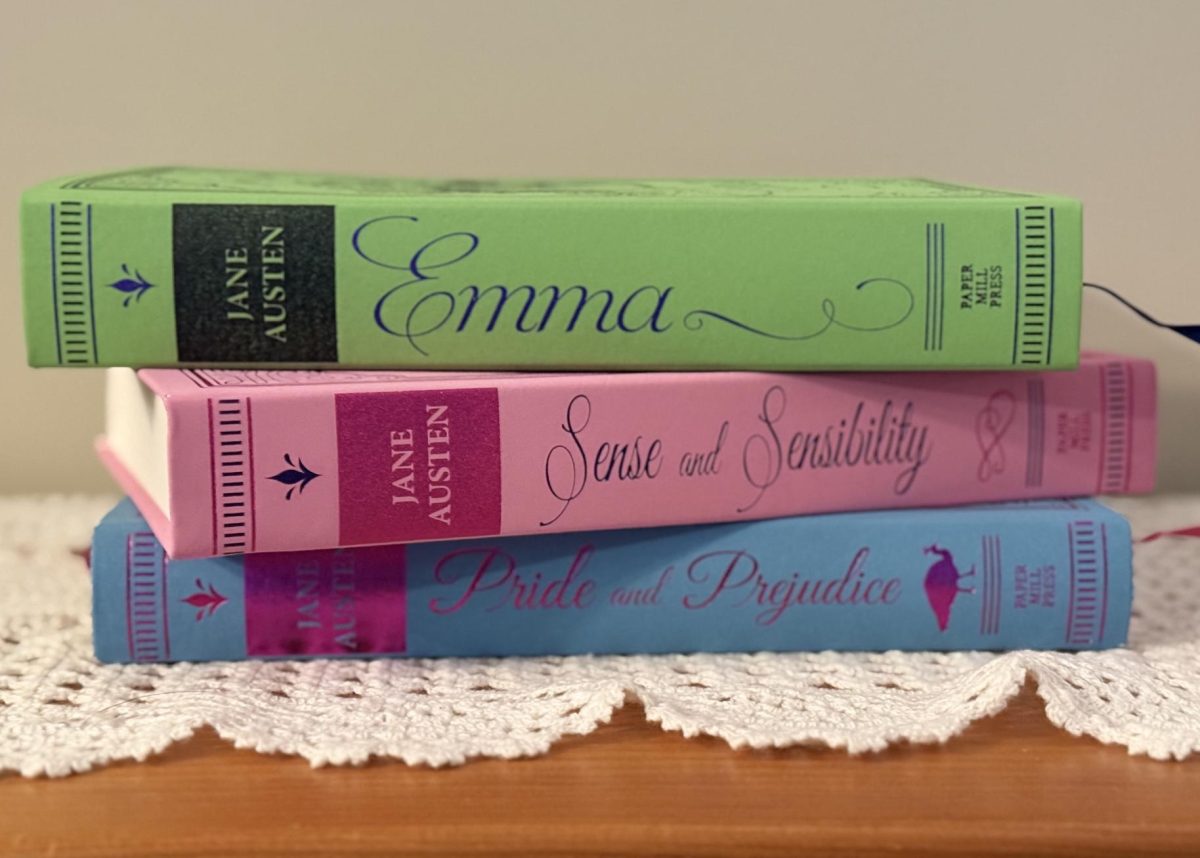Jane Austen is a phenomenal writer who has become one of my favorites these past couple of years. Her ability to portray complex personalities in the characters of Elizabeth Bennet, Anne Elliot, Mr. Darcy, and many others, is unique. It always shocks me how similar the struggles are in modern life to those of Jane Austen’s time. Jane knows that when things get rough you can always take a trip to the seaside until everything smoothes over back home. All joking aside, it is no wonder that there have been so many film adaptations of her work, like Clueless from her novel Emma, the BBC Sense and Sensibility series, and various interpretations of Pride and Prejudice through the years. Recently, I have gotten back into reading after seven months of struggling to find time to read the 55 chapters enclosed in the cover of Jane Austen’s comedy, Emma. I loved every minute of it.
Emma follows the life of a young woman named, you guessed it, Emma Woodhouse, who has a knack for matchmaking. As a wealthy heiress living with her eccentric father in the fictional town of Highbury, Emma’s opinion is held in the highest esteem by all of her neighbors and friends. The 2020 movie adaptation characterizes Miss Woodhouse in three words: “handsome, clever, and rich,” which makes it appear that Emma has it all. All of this respect and dignity tends to go to Emma’s head at times, which shows she is not as perfect as she appears to be. Many mishaps occur as Emma uses her matchmaking habits to find a match for her dear friend Harriet, although she swears to never marry herself. Through the trials of making matches, Emma learns that things are not always as they seem, and secret engagements, surprise confessions of love, and meddling neighbors all show her that people are not always in need of meddling in their lives.
Although she is often seen as a perfect example of grace and authority, or at least in her friends’ eyes, Emma has her flaws that, quite honestly, make her unlikable at times. Jane Austen herself claimed, “I am going to take a heroine whom no one but myself will much like.” She is often haughty, rude, and has an air of supremacy about her, which might inevitably cause readers to hate her character. But something is different about the way Miss. Austen wrote Emma. Despite her prominent societal role, Emma does have to face the music sometimes. Her close family friend and eventual husband Mr. Knightley is the only person in Emma’s life that will point out her flaws. Jane Austen’s characterization of Emma shows how having fortune and a good position in society does not give anyone an excuse for treating others poorly, which is a very important theme throughout the novel.
Even though it took me so long to read Emma (at no fault of the novel itself), I really enjoyed it. The 2020 film adaptation EMMA, directed by Autumn de Wilde, was already one of my favorite movies before starting the book, and reading Jane Austen’s original work made me love it all the more. Typically, movie adaptations pale in comparison to their base novel, but EMMA. pleasantly surprised me on how true it stayed to the book while keeping the story new and exciting. Since I watched the movie first, it was really interesting to see how little differences in the plot line unfolded as I read compared to the condensed movie version. Of course, the secret engagement of Frank Churchill and Jane Fairfax, Mr. Knightley’s iconic “if I loved you less, I might be able to talk about it more” speech, and Miss Bates’ endless chatter all remained consistent in both the film and the novel. I thoroughly enjoyed comparing details from the book to those in the movie. I felt that the creators of EMMA. did a great job in keeping the feel of the characters and their stories the same, even though they could not include every detail from the book. If you have not yet had the opportunity to read Jane Austen’s Emma, I wholeheartedly recommend picking up a copy of this beloved comedy and giving it a read. It just might take you seven months, but I promise you it is worth it!








